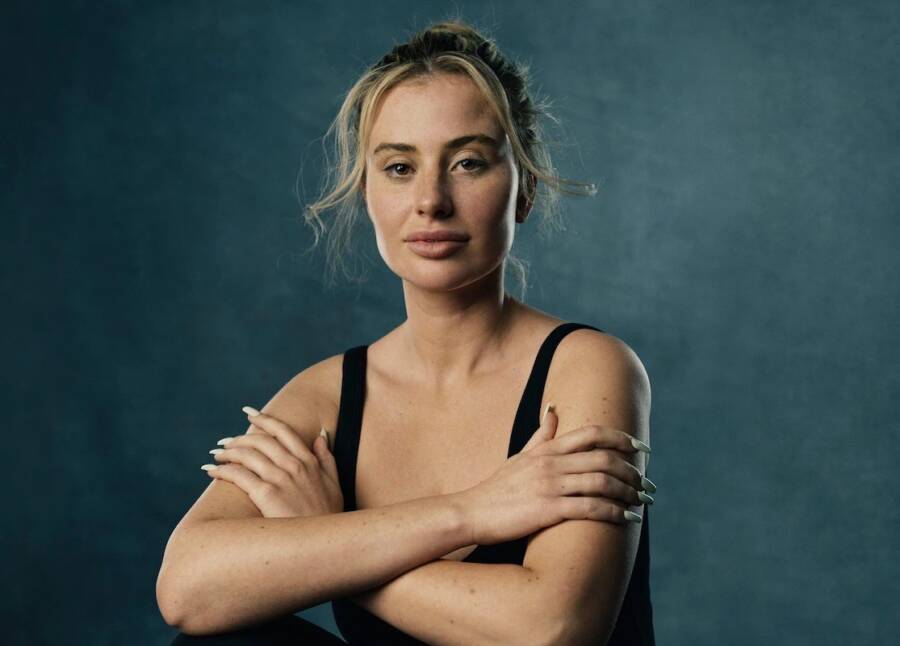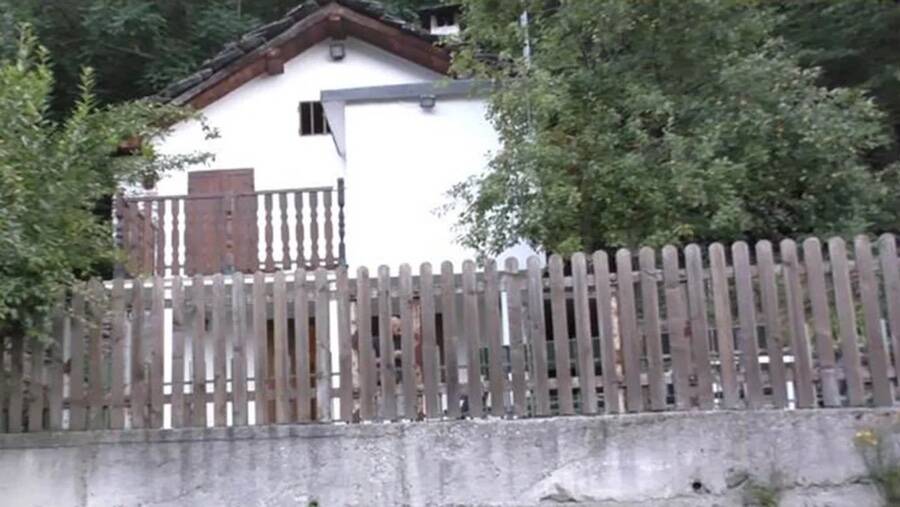Lured to Milan for a fake photoshoot in July 2017, Chloe Ayling was kidnapped by brothers Lukasz and Michal Herba. But even though she was held for ransom, she was released six days later, despite no payment being made.

Chloe Ayling/InstagramChloe Ayling was 20 years old when she was abducted.
Chloe Ayling is a British model, but that’s not the only thing she’s known for. Her name is forever tied to a shocking incident from July 2017.
Then 20 years old, Ayling was abducted during a work trip to Milan, Italy. She was held captive for six days before escaping without major injuries. Terrifyingly, her kidnappers had demanded a ransom — and claimed that she would be sold as a sex slave on the dark web if the ransom wasn’t paid.
While Ayling’s abduction and subsequent escape made major headlines, there were many people who doubted her story, believing it to be a publicity stunt for her modeling career. These doubts have never really gone away, even though her abductors were tried and convicted for their crimes.
The Kidnapping Of Chloe Ayling In Milan
In July 2017, Chloe Ayling traveled to Milan for a modeling gig. The assignment took her to an old warehouse on the outskirts of the city, which wasn’t unheard of for a photoshoot, but she couldn’t help but feel uneasy when she showed up to the eerily quiet location on July 11th.
There was no photoshoot. Instead, she was attacked by two masked men, drugged with ketamine, and taken to a remote farmhouse. Her abductors were later revealed to be two Polish brothers, Lukasz and Michal Herba.

Polizia di StatoThe house where Chloe Ayling was held captive.
Ayling was held captive for six days, during which time her mother contacted her agent because she hadn’t returned to the United Kingdom as planned.
Chillingly, Ayling’s agent soon received an email from Lukasz Herba, who identified himself only as “MD” from “The Black Death Group.” This email demanded a €300,000 ransom and threatened to sell Ayling on the dark web if the ransom money didn’t materialize quickly.
The agent reached out to the British consulate in Milan, and employees there quickly contacted the police. Authorities soon visited the address that the model was given for her supposed photoshoot.
While they did not find Ayling at the location, they did find some of Ayling’s clothes. From there, the investigation briefly stalled.
But, as luck would have it, Ayling showed up to the British consulate in Milan on July 17th. Ayling had been released by her kidnappers, even though the ransom had never been paid, and she appeared to be relatively unharmed.
However, her ordeal wasn’t over yet.
Chloe Ayling’s Method Of Escape Made Her A Target For Scrutiny

Sergio Foffo/Polizia di StatoA police reconstruction of how Chloe Ayling was kidnapped.
On that fateful day in July 2017 when Chloe Ayling disappeared, she believed that she would be meeting with an Italian photographer named Andre Lazio.
“Lazio” was actually Lukasz Herba, a Polish man who had been living in England leading up to the attack. When Ayling arrived at the supposed photoshoot location, Lukasz Herba and his brother Michal Herba injected her with ketamine and then moved her to the secluded farmhouse.
Lukasz falsely claimed that he and his brother Michal were part of a Romanian crime group called Black Death. This would later be revealed to be false over the course of the investigation after Ayling’s release, and the only other person involved in the scheme was Michal.
So, why did Ayling’s captors let her go without the ransom payment? According to the model, she realized that Lukasz seemed to be “infatuated” with her and he was especially sympathetic when he found out that she was a mother. She began to play into his weak spot for her, realizing that this could be the only way to save her own life. She even agreed to share a bed with him and promised that she might become his girlfriend one day.
Much is still unclear, but it’s believed that Lukasz hoped to form a real relationship with Ayling outside of her captivity, and that he thought Ayling would depict him as a stranger who’d come to her rescue. It’s likely that Ayling’s act of deception helped her escape a terrible fate.
However, it was this exact act of deception that would make people doubtful of Ayling’s story. When it was revealed that Lukasz and Ayling had gone shopping together and held hands while Ayling was still being held captive, some social media users and critics claimed, “This wasn’t victim behaviour.”
Some became even more skeptical of her narrative when she happily posed for the cameras while being interviewed about her abduction, smiling even when talking about fearing for her life, and sometimes wearing revealing outfits during press conferences. Ayling defended herself, saying she did whatever it took to survive, and the nature of her work meant that she reacted differently to cameras than other people might.

Polizia di StatoLukasz Herba was convicted of kidnapping Chloe Ayling in 2018.
The rising scrutiny wouldn’t be helped by the Herba brothers’ lawyers, who claimed that the whole abduction was actually an elaborate publicity stunt meant to increase Ayling’s fame. The British press latched on to the theory, continuing to question the legitimacy of her kidnapping and escape.
Controversial British broadcaster Piers Morgan aggressively questioned her on Good Morning Britain about her experience, saying, “If you’re going to conduct media interviews where you’re being paid money, and you’re doing a book for thousands of pounds before there’s even been a trial, I think we’re perfectly entitled to ask you difficult questions.”
Ultimately, Lukasz Herba was found guilty in the kidnapping case on June 11, 2018. He was sentenced to 16 years in prison, though that sentence was later reduced to 11 years after an appeal. Michal Herba was also sentenced to 16 years in prison the following year, but he was released early following his own appeal. Neither of them are allowed to return to the United Kingdom.
Despite her kidnappers’ convictions, Ayling was still regularly interrogated about her experience, and she said some people even called her a “liar” and continued to accuse her of faking her own abduction for notoriety.
“I was never praised for my bravery getting out of the situation,” Ayling later recalled. “Instead, I always have to defend myself.”
Years After The Kidnapping, Chloe Ayling Is Still Trying To Tell Her Story

Corriere della SeraChloe Ayling has been quoted saying, “I don’t think people believed me because I wasn’t in tears.”
In the years since Chloe Ayling’s abduction, she’s written the book Kidnapped about her ordeal. She also appeared on the reality TV show Celebrity Big Brother in 2018, a decision that continued to fuel backlash against her.
Recently, media coverage of her has softened somewhat, with the British publication The Times reflecting: “It is also hard not to perceive misogyny and classism in the way Ayling was treated. She was buoyed by one supportive message (among thousands of hostile ones) saying if she was ‘a snivelling mousy-haired woman’ or a teacher she would have been believed.”
In 2024, a six-part series titled Kidnapped: The Chloe Ayling Story was released by the BBC, recounting the story of Ayling’s abduction and the media backlash that followed her release.
“This should be a lesson for people not to judge victims based on the way they act or react,” Ayling told the BBC in 2024.
In 2025, a new three-part documentary on the BBC, Chloe Ayling: My Unbelievable Kidnapping, aimed to dig even deeper into her story and explore why so many were skeptical of her experience. The new documentary also revealed her diagnosis with autism spectrum disorder.
“Autism plays a big part in the way that I reacted, and that was confusing to neurotypical people,” Ayling explained. “However, there are other reasons why people could react in the way that I did, or in an ‘unusual’ way that doesn’t fit the normal box.”
She added, “People disassociate with events that have happened or have a delayed reaction, especially after trauma. So, it can’t all be put down to a diagnosis, and that shouldn’t affect the way people treated me.”
Next, read about the French fitness model who was killed by an exploding whipped cream can. Then, learn the tragic fate of Audrey Munson, America’s first supermodel who died in a mental asylum.





